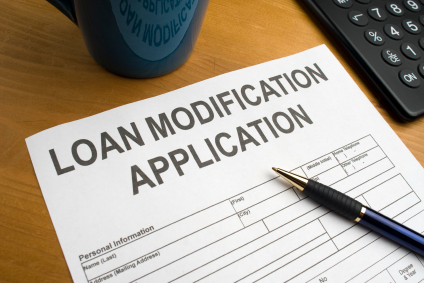
If you are seriously delinquent on your car loan payments, a car loan modification could help you keep your car and avoid repossession. Auto loan modifications are simply adjustments to your monthly payments (and sometimes your interest rate) which are made to help you avoid repossession. Banks sometimes allow for loan modifications as a final, and last-ditch effort to avoid having to take the car away from you. Not all banks will allow you to modify your car loan. However, if you know you simply can't afford the payments, trying costs you nothing.
See what kind of interest rates you can get >>
Since a car loan modification can often be a lengthy and difficult process, you should make sure that it is the right decision before proceeding. Here are some situations in which a car loan modification might be warranted:
Bottom Line: If you have suffered a financial setback, you are better off asking for a loan modification than just letting the loan default. The bank would much rather work with you to prevent more loss than to go through the expense of sending the repo man to your driveway.
It is in the finance company's interest to accommodate the consumer's needs, as they stand to lose money (usually) in a repossession. Realistically, lenders do not want to repossess cars because of all the accompanying headaches involved in preparing it for resale. Statistics show that the costs for resale and sending to auction have escalated dramatically during the past decade.
Ok, now that you've decided that a car loan modification is right for you, here are some steps you can take to give yourself the best chance at having your monthly payments reduced:
Step One - Call Your Lender
Call you lender them know that you're no longer able to make payments the way they're currently structured. Your lender will instantly tell you about the dangers of not making your payments and the possibility of repossession. Ultimately, they do not want your car.
The further behind you are on your payments, the more receptive many banks become to the idea of a loan modification. However, there is no guarantee your bank will actually grant you a loan modification.
As a general rule of thumb, only the lender who originated the initial loan will be able to modify it for you. The other option is to go through an attorney. This is less popular because you will have to pay legal fees, and the attorney just goes through the lender anyhow. If you find a company that offers to do an auto loan modification outside of your original lender, then the chances are pretty good that what they are offering is a loan refinance. It may not be a bad idea, but you need to understand that it's not a modification.
Step Two - Prepare Your Documents
If your bank approves the idea of a loan modification, they will most certainly require documentation regarding your hardship or reasons for not being able to make your payments. They may require notarized letters or affidavits, copies of phone or utility bills, bank statements, pay stubs or any number of other documents. Send all requested documents to your lender.
Step Three - Wait and See
Once you have submitted all the requested documentation to the lender, there's not a whole lot you can do, except wait. You should also be aware that repossessions can occur while applying for a loan modification. Many times, departments within the same bank simply don't communicate very well. If repossession occurs, there won't be anything the modification department can do to help you. Even while applying for a loan modification, try to pay something toward your current monthly payments. Also, make sure to ask the modification department to inform the repossession team of your intentions.
Step Four - Weighing Your Options
When you modify a loan there are a few different things the lender may offer. In some cases the lender may lower the interest rate and remove any fees associated with delinquencies. The lender may also offer to take past due payments and add them to the back of the loan. This will bring the loan current and take your interest back to an affordable rate. If this doesn't help enough, you can ask the lender to see if they can reduce the loan amount. You'll be much better off if you have a specific term in mind. If you've lost your job, the lender may allow you to make reduced payments until you've found another job. Sometimes they will offer you a set amount of time instead. Just talk to the lender and see what they can work out.
Everyone goes through tough financial times at some point in their life, so you shouldn't ever feel guilty or ashamed if you find yourself in a situation where you need to modify the terms of your car loan. By being proactive and actively working to modify your payments, you can avoid getting yourself into even worse shape by possibly having a repossession on your record. By following the steps listed above, you should be able to get yourself back on the road to full car loan repayment.